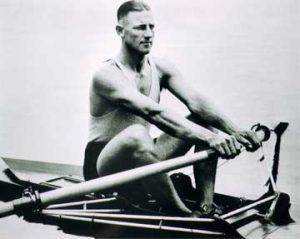Last week, I looked at options (in the context of voting) and the fact that generally, there is a range of options available to everyone before committing to an action. Everyone carries out a number of actions every day, some of them consciously while others seem to happen without much thought. So why bother choosing our actions if we get through the day without it?
First of all, let’s look at what an action is. Google’s dictionary comes up with “the fact or process of doing something, typically to achieve an aim” and the thesaurus came up with “behaviour” as the first and foremost synonym and ultimately, looking at all our actions as one combined entity, that is what it is. However, if we take a step back and break down behaviour into smaller actions, then it becomes more manageable to think about them in a meaningful way.
For example, what actions did you take today? Think about every single thing you did and list them in order. Did you include flossing your teeth?
You may think that actions which you carry out in the privacy of your own home or those which are not witnessed by others may not make a difference in the world. To some extent you are right. After all, nobody knows if you have flossed this morning. On the other hand, these small, unobservable actions impact your life and by extension impact people around you. Regarding flossing, I hope you did because there seems to be a link between a lack of good oral health and heart disease according to the Mayo Clinic. There is even a study on “Associations between poor oral health and reinjuries in male elite soccer players“. More on private actions and their impact on your life in two weeks time though.
The actions which are even more important are those that are observable or even noticed by others. It may be your family, your coworkers or fellow students or someone who is on the same bus as you or walks their dog in the same park. You have an impact on people around you just for being in the same space. Even more important than your mere presence are your actions in public. Actions speak louder than words is a well known saying. For example, did you greet people with a smile or even said hello this morning? Did you help someone who needed help or turn away because it may turn out to be inconvenient?
Let’s compare two global events and how they played out. Last Thursday, the Olympic Winter Games started and the main actions discussed are the International Olympic Committee‘s (IOC’s) decision to ban Russia as a country due to a state backed doping scheme. Still, 169 athletes are allowed to compete as neutrals under the group name of “Olympic Athletes of Russia” and the IOC keeps watching their actions closely.
In 1928, on the other hand, during the Olympic Summer Games, the conversation focused on Bobby Pearce who won the Olympic gold medal in rowing even though he briefly stopped in the quarter finals to let a family of ducks pass.

Source: Wikipedia
Even though Pearce won the race comfortable and therefore his action did not have a direct impact on anyone else at the time, it has a big impact to this day since it shows Pearce as the role model we all could be.
I am not expecting anyone to risk a gold medal or go out of their way to achieve a set number of good deeds a day. All I am trying to do is to get you thinking about your actions and whether they reflect what you truly want the world to be like.
This opens the question: what would you like the world to look like? Imagine you could change the world to your liking. What would it look like? I encourage you to think about your ideal world; what would be in it and what would not feature; how people interact with each other. Most importantly, once you have your ideal world, keep thinking and come up with ideas how to contribute to this ideal world. Some of these ideas will be big one-off projects and may even need help from the outside. Some of these ideas can form the basis for your actions on a day to day basis.
For me, my ideal world would be more equal and people more collaborative. When I talk about equality I mean true equality in which everyone is treated the same and has the same opportunities at the outset of life. As a human race, we have come a long way and I’m certain that we will go the rest of the distance as well. I contribute as often as I can with different actions e.g. when I am leading teams, I make sure that each person is paid the same for the same work irrespective of gender, religion, skin colour or any other persuasion. I aim to treat people the same when I interact with them. Most importantly, I call out “isms” when I come across them. It is important to take action and speak out and act upon inequality because otherwise nothing will change.
Therefore, I encourage you again, think about your ideal world and what would need to change for this to happen. How can you contribute to your ideal world with your actions?
If you need a challenge, pick five actions that you came up with and carry them out at every opportunity you get for a whole week. Imagine, even one single action carried out by everyone on the planet would be enough to have a big impact.
